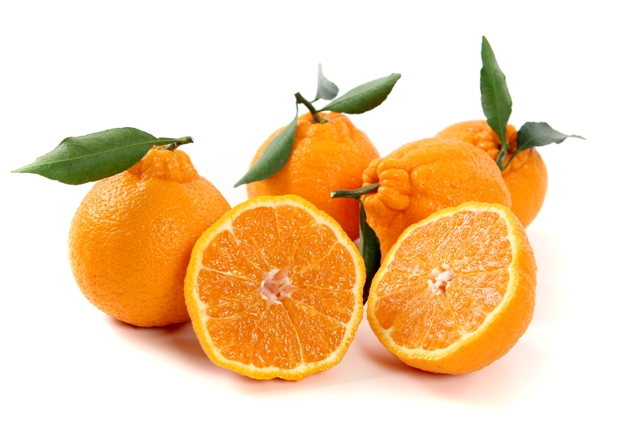|
| |
 |
|
| Jeju's hallabong is a popular gift for family and friends. Photo courtesy Jeju Special Self-Governing Province |
This is an advertorial for Jeju Special Self-Governing Province
In the 2nd year of his reign in 476, King Munju of the Baekje kingdom was offered mandarins from the Tamna kingdom (present day Jeju Island).
The fruit was used for ceremonies to honor people's ancestors, for medicinal purposes and for entertaining honored royal guests.
It was so popular that it was not long before the Goryeo rulers were managing an official orchard on Jeju.
Modern industrialized citrus cultivation began in the 1910s, supported by governmental policies seeking to increase production.
Since then the reputation of the fruit has only increased, and now it is one of Korea’s best-loved fruits.
There are many kinds of Jeju citrus. The most common is the gamgyul (Citrus unshiu or satsuma) as well as hallabong, cheonhyehyang, and redhyang.
As the area under cultivation has risen, people around the world have grown to love the fruit including in Japan, the US and the UK.
Jeju Special Self-Governing Province supports the cultivation and export of high-quality citrus fruit through many policy measures. In the past, many of these policies related to citrus production.
Through selective breeding, scientific orchard management techniques, and optimal soil and climatic conditions, the quality of Jeju native mandarins has steadily increased.
This accordingly has boosted exports to more and more markets around the world.
Citrus comprises 53 percent of total agricultural product, 37 percent of total arable land, and engages 85 percent of Jeju farmers. Overall, such activities account for 8 percent of total Jeju's GDP.
The benefits of citrus are not only economic, however.
Plentiful in vitamin C, the Jeju mandarin is great for the skin, helps relieve fatigue and promotes the absorption of calcium. Its vitamin P also aides in prevention of arteriosclerosis and hypertension by curbing the permeability of capillary vessels.
As Jeju mandarins gain greater popularity with tourists and fruit lovers worldwide, Jeju’s mandarin growers continue to innovate and improve quality and production.
Mandarin growing is both a regional specialty and a local treasure. |




















